There’s something magical about banana bread — warm, fragrant, and just sweet enough to feel like a treat. It’s the kind of bake that fills your kitchen with comfort and nostalgia. But while banana bread seems simple, getting that perfect balance — moist but not dense, sweet but not cloying — takes a few key tricks.
Whether you’re using up overripe bananas or baking for a cozy weekend breakfast, this guide will show you exactly how to make banana bread that turns out soft, tender, and foolproof every single time.
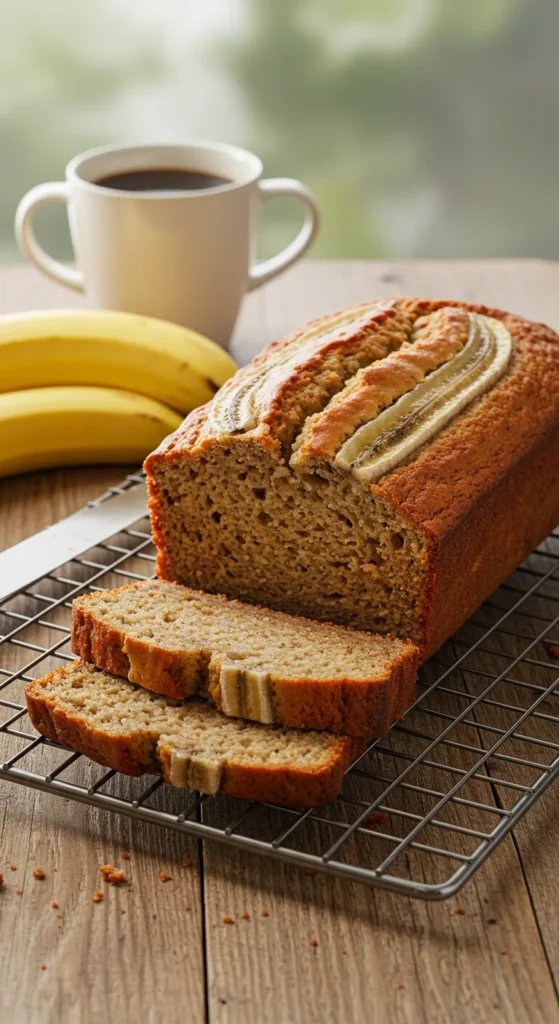
Step 1: Start with the Right Bananas
The best banana bread begins with very ripe bananas — the kind covered in brown spots that you’d probably never eat raw. They’re naturally sweeter, softer, and full of concentrated banana flavor.
- Perfect stage: Mostly brown, still a little yellow.
- Too far gone: Black and leaking — that’s a no-go.
- Not ripe enough? Pop your bananas (in their peels) into a 350°F (175°C) oven for 10–15 minutes until dark and soft. Let them cool before using.

Step 2: Measure Like a Pro
Moisture is the soul of banana bread — too little, and it’s dry; too much, and it’s gummy. Follow this golden ratio for perfect texture every time:
Basic Ingredients
- 3 medium ripe bananas (about 1½ cups mashed)
- ½ cup unsalted butter (melted and cooled)
- ¾ cup brown sugar (for a rich, caramel-like sweetness)
- 2 large eggs (room temperature)
- 1 teaspoon vanilla extract
- 1½ cups all-purpose flour
- 1 teaspoon baking soda
- ¼ teaspoon salt
Optional add-ins:
- ½ teaspoon cinnamon for warmth
- ½ cup chopped walnuts or chocolate chips for texture
Mixing Tip
When adding flour, fold gently with a spatula. Overmixing develops gluten, making the bread tough instead of soft.
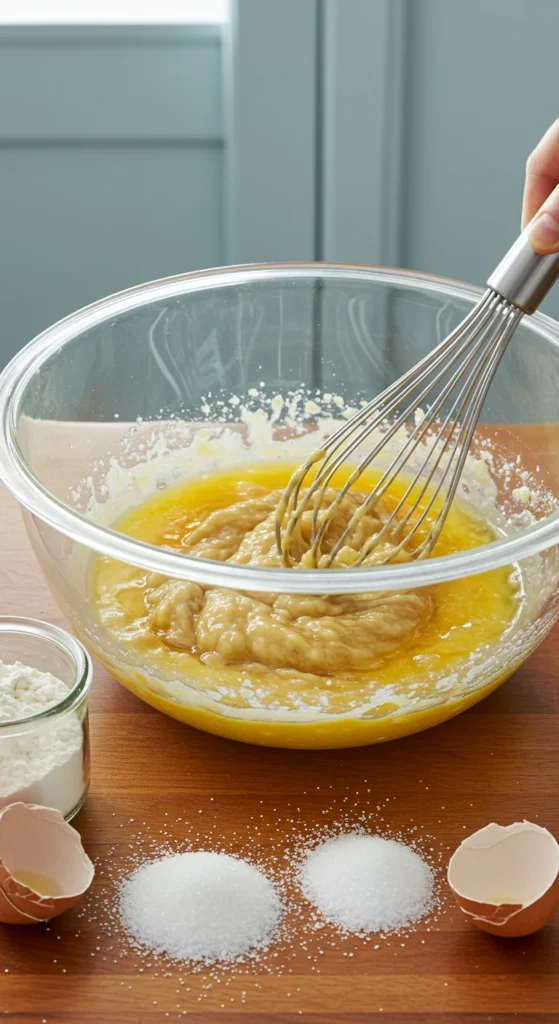
Step 3: Master the Mixing Method
Banana bread doesn’t need fancy equipment — just two bowls and a whisk.
- Mix the wet ingredients: Mash the bananas until mostly smooth (a few lumps are fine). Add melted butter, eggs, sugar, and vanilla. Whisk until well combined.
- Combine the dry ingredients: In a separate bowl, whisk together flour, baking soda, salt, and any spices.
- Bring it together: Add dry ingredients into the wet mixture and gently fold until no streaks of flour remain.
- Add mix-ins: If using nuts or chocolate, fold them in last.
Pro tip: Your batter should be thick and scoopable — not runny. If it feels too wet, sprinkle in an extra tablespoon of flour.
Step 4: Bake It Just Right
The key to a perfect loaf is slow, even baking.
- Temperature: 350°F (175°C)
- Pan: Standard 9×5-inch loaf pan, greased or lined with parchment paper
- Time: 55–65 minutes, or until a toothpick inserted in the center comes out clean
Don’t overbake! The edges should be golden brown and slightly pulling away from the pan, but the center should still be moist and springy.
If the top starts browning too quickly, loosely cover it with foil halfway through baking.
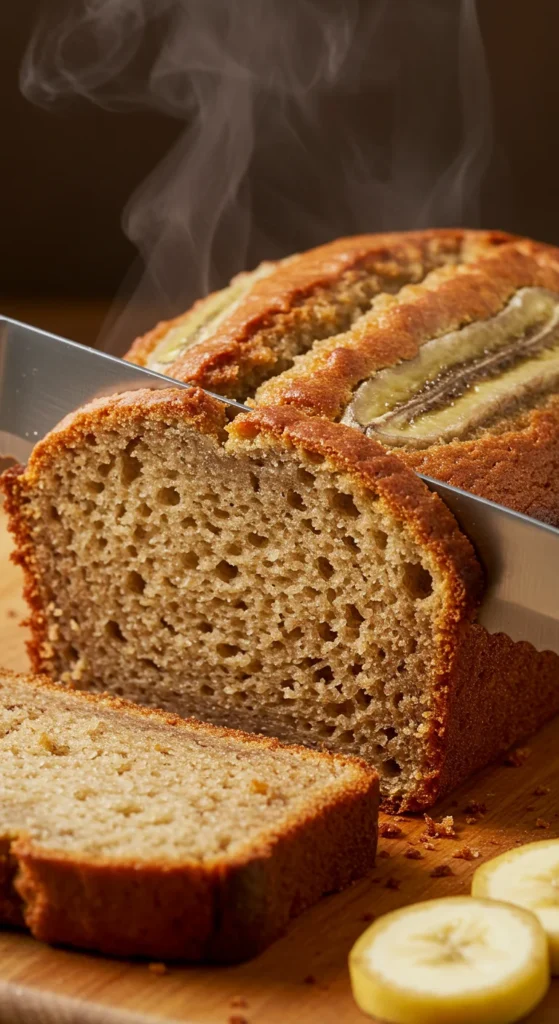
Step 5: Cool and Slice Like a Pro
Fresh banana bread smells so good that it’s tempting to slice right in — but patience pays off.
- Let the bread cool in the pan for 10–15 minutes.
- Transfer it to a wire rack and cool completely before slicing.
This helps the crumb set and keeps your slices moist instead of crumbly.
Want bakery-style slices? Use a serrated knife and clean it between cuts.
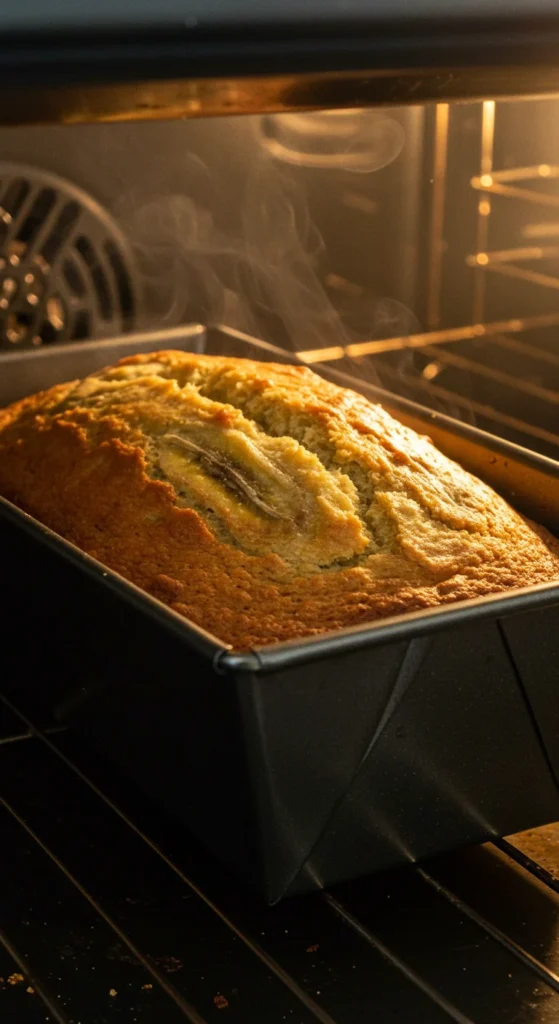
Step 6: Keep It Moist for Days
Banana bread actually tastes even better the next day as the flavors deepen. To keep it fresh:
- Wrap tightly in plastic wrap or store in an airtight container.
- Leave at room temperature for up to 3 days.
- For longer storage, freeze individual slices — they thaw beautifully for quick breakfasts or snacks.
Optional bonus: Warm a slice in the microwave for 10 seconds and top it with a pat of butter or a drizzle of honey. Heaven.
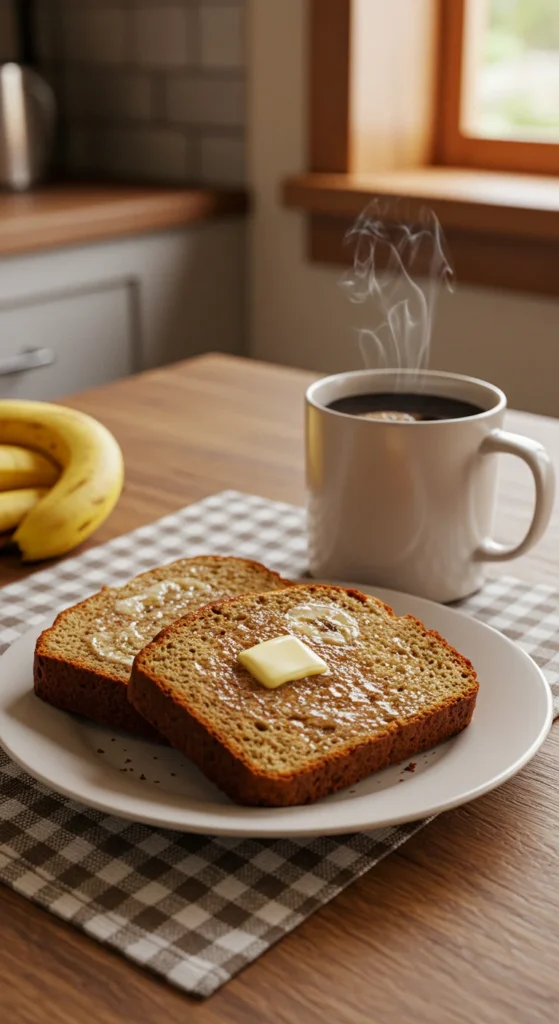
Final Thoughts
Moist, flavorful banana bread isn’t a matter of luck — it’s all about ripe bananas, gentle mixing, and just the right bake time. Once you master this easy recipe, you’ll never toss out overripe bananas again.



Leave a Reply